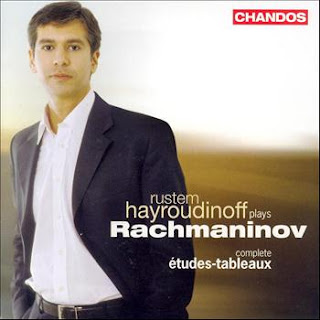So how can it happen that people go and schedule a Jonas Kaufmann concert at the Royal Festival Hall and a two-hander with Juan Diego Florez and Joyce DiDonato at the Barbican on the same flippin' night?
The fact that the inaugural Opera Awards are taking place tonight at the Park Lane Hilton, presenting prizes in 23 categories in front of 700 people, is probably a complete coincidence...
As it was, we had to choose, and I chose Kaufmann. There was Verdi and there was Wagner, and OK, it was one of those dates that pad out the sung programme with under-rehearsed orchestral extracts - but it was still Kaufmann.
He started off by charming everyone with a little speech about why he was using the music. He doesn't usually, he insisted, but he's had so much to deal with these past few weeks...and he didn't want us all to sit there watching him sweating and shaking and suffering, so...well, fair enough.
Wagner or Verdi, then, Jonas? Both, he says; and proceeded to prove that singing the one to near-perfection in no way precludes doing likewise for the other.
His Verdi selection was well planned, traversing the composer's development from the cod-Rossini idiom of the overture to Luisa Miller and the aria "Oh! Fede negar potessi...Quando le sere al placido"; through Simon Boccanegra - "O inferno!...Cielo pietoso, rendita" emerged as an absolute masterpiece in his interpretation - towards the ever-growing sophistication of Don Carlo ("Io l'ho perduta....Io la vidi") to La forza del destino ("La vita è inferno all'infelice...O, tu che in seno agli angeli").
This Verdi singing had everything: unleashed power matched by ever-alert nuance, tender covered tone balancing taut rhythms, expressive enunciation colouring mellifluous phrasing. Above all, Kaufmann's identification with the drama came across as utterly genuine. Many of these arias were pieces most of us have not heard him sing before. Therefore much anticipation had focused upon what he'd do with them; and he did not disappoint.
The Wagner extracts, though, are all on his recently-released album (of course) - and in some cases his performance even exceeded the achievements of the CD. The extremely extended Siegmund cries of "Wälse" suffer on the disc from a little drifting intonation, but not for a moment yesterday. Precision, power, character, colour, intelligence and that unmatchable, unmistakeable Kaufmann tone: it was all there and who could ask for anything more?
The special truc about Kaufmann is that he is a musician first and foremost: one who expresses his innate, sterling-quality musicianship through a voice that happens to be a once-in-a-lifetime phenomenon. This is rare. And he can act; and he looks great. All of that is a bonus.
He brought us a powerful, bitter Siegmund, a disingenuous Walther "Am stillen Herd" (we longed for the Prize Song but didn't get it) and his magnificently tormented "Amfortas! Die Wunde" from Parsifal - the opera that works least well as bleeding chunks at any time. (Pictured: Kaufmann as Parsifal at the Met.) Yet of the whole programme, the Wagner encores stand out as the most cherishable moments: two of the Wesendonck Lieder, "Schmerzen" and "Träume", sung entirely as the Lieder they are rather than as opera manqué, the emphasis falling upon the poetry, the intimacy, the sensibility. And "Winterstürme" from Die Walküre brought us an assurance that after this awfully long winter, spring really had come at last.
So had the flowers. Rarely do we see a man showered with bouquets of red roses to this extent - brought to him on stage, but also handed to him from the audience. One lady trotted to the front with a red shiny bag to give him, content invisible. Let's hope it was chocolate. He deserved some.
The Florez/DiDonato concert sounds like a classier event, as far as peripheries are concerned - the RFH audience had to deal with a programme sprinkled with ridiculous misprints (Wagner was in the Dresden Uprising in 1949?), equally ridiculous summaries of entire opera plots yet no song texts, and huge pin-up style photos of our tenor (well, that's OK to some...). But all credit to the Philharmonia and conductor Jochen Rieder for delivering much better than the other orchestra did last time Kaufmann sang a Gubbay gig, even if - thanks, I fear, to the RFH acoustics, which have been infuriatingly biased against the treble ever since the refurbishment - the brass drowned the upper strings at every turn. A guest clarinet in the form of Andrew Marriner proved worth his weight in gold.
UPDATE, 3.40pm: There was a fourth encore. It was Verdi's 'Ah, la paterna mano'. I missed it. I thought it was all over...Fortunately, though, someone filmed it and has put it on Youtube. Here it is.







